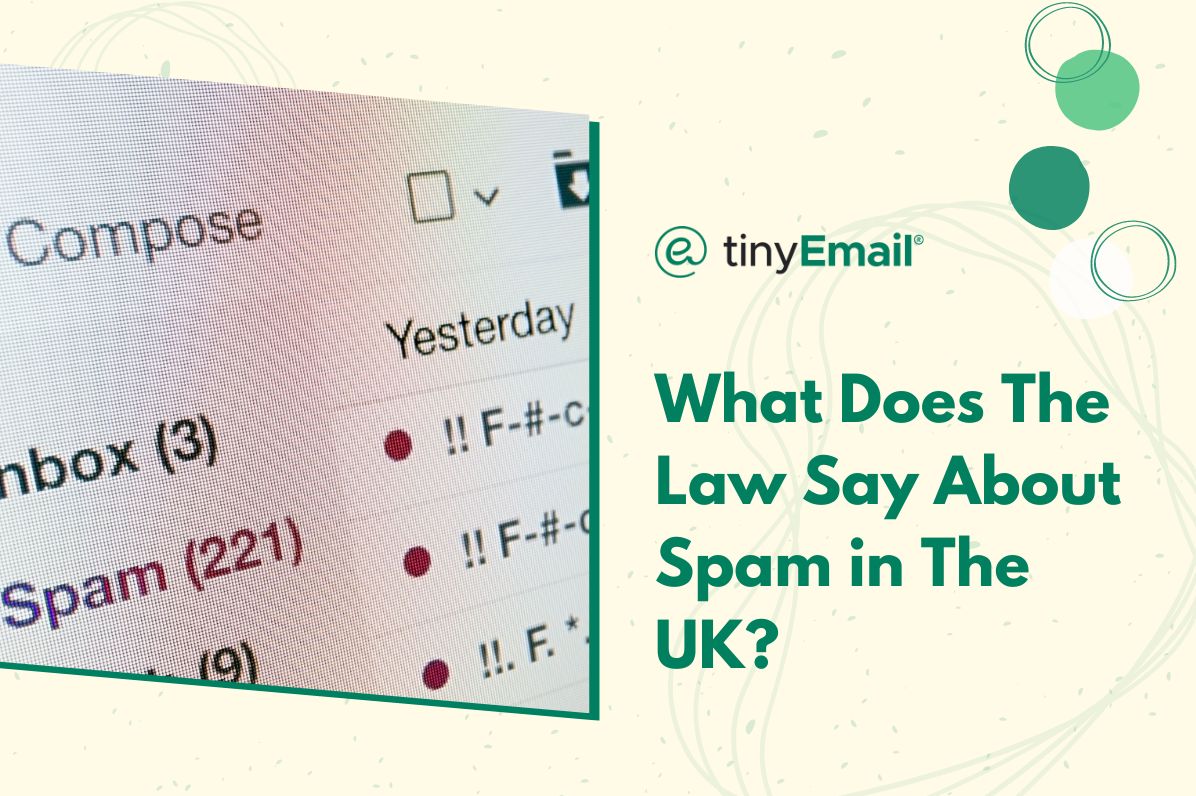What Does The Law Say About Spam in The UK?
Don’t make legal and ethical mistakes. If you’re sending emails in the UK, keep in mind these anti-spam laws to ensure you’re compliant with email protections.


What Does The Law Say About Spam in The UK?
In the UK, the law that governs email spam is the Privacy and Electronic Communications Regulations (PECR). The PECR is a regulation that specifically relates to electronic communications, such as email, SMS, and telephone calls. It applies to any organization that sends marketing messages to individuals in the UK, regardless of where the organization is located. PECR was introduced in 2003 and updated in 2018.What do these regulations say, how will they impact your marketing efforts in practice, and how can you be sure to remain legally compliant while still reaching your target audience in the best way? Find out below:
What Does The PECR Say About Spam?
Under the PECR, individuals and organizations are prohibited from sending unsolicited marketing emails to individuals without their consent. This means that individuals must actively opt-in to receive marketing emails, rather than being automatically subscribed. This rules out the use of purchased mailing lists or deceptive prompts that subscribe a person without double-checking their interest in actually subscribing.The PECR also requires that marketing emails must clearly identify the sender, provide a valid physical address, and include a clear and easy-to-use unsubscribe option. This works to prevent spam or duplicate mailing lists, and helps to establish any businesses that do host mailing lists as legitimate.Failure to comply with the PECR can result in enforcement action by the Information Commissioner's Office (ICO), including fines of up to £500,000. Note that the PECR only applies to marketing emails, and not to transactional or service-related emails, such as order confirmations or account updates. Also, if a person or organization has an existing business relationship with the recipient, they may be able to send marketing emails without explicit consent.
How to Comply with PECR Regulations
When you don’t comply with PECR regulations, not only does your brand reputation go down, but you could also be hit with an expensive fine. Luckily, there are many steps you can take to avoid sending marketing emails that could be perceived or classed as spam, such as:
- Obtain consent: Ensure that you have obtained the recipient's explicit consent to receive marketing emails. This means they have actively opted-in to receive emails from you, and there should be no reasonable way for them to accidentally or unwillingly subscribe.
- Be clear and concise: Make sure that the purpose of your email is clear and concise. Use a subject line that accurately reflects the content of the email, and include relevant information in the body of the email. Clickbait or otherwise misleading content is not permitted.
- Identify yourself: Make sure that you clearly identify yourself as the sender of the email. Use a recognizable name and provide a valid physical address. Using a false name or address can result in penalties, as well as having your emails deemed as spam overall.
- Provide an unsubscribe option: Include a clear and easy-to-use unsubscribe option in your email. This allows recipients to opt-out of receiving further emails from you, at any time and without hidden restrictions or misdirection. It can seem unhelpful to your aims of growing and maintaining a large email list, but it’s legally necessary and, as a bonus, can present your business as respectful and legitimate.
- Be selective: Don't send emails to large lists of recipients indiscriminately. Instead, target your emails to specific groups of people who are likely to be interested in your product or service. This is already considered best practice in marketing.
- Don't use deceptive tactics: Avoid using misleading or deceptive tactics in your emails. For example, don't make false or misleading claims in your email content, and do not advertise products or services inaccurately.
The good news is, these restrictions already fall in line with common marketing standards for legitimate brands. This ensures your email marketing will not only be legally compliant, but also follow strategies that have the best impact on customers.


.webp)
Newsletter
Join our newsletter today Get instant updates

20,000+ users subscribed to newsletter

